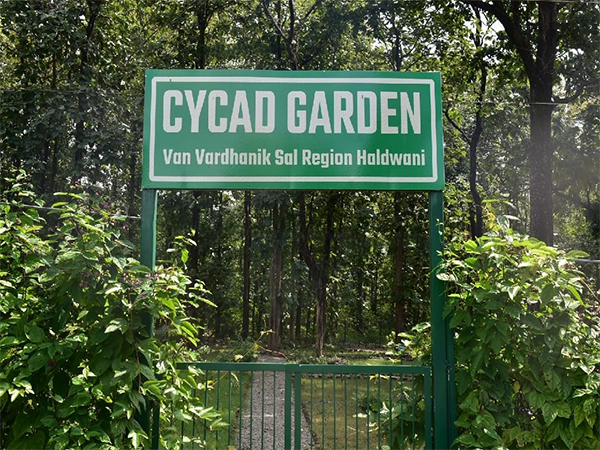Haldwani (Uttarakhand) [India], May 19 (ANI): Uttarakhand Forest Department has established the state’s first Cycad Garden at Haldwani. The garden is home to thirty-one different species of cycads, seventeen of which are classified as threatened.
The garden has been established on an area of over two acres with funding from the Japan International Cooperation Agency (JICA).
Of these, nine species are native to India. Notably, only about fourteen cycad species have been reported from the country. Some of the prominent native cycad species in this garden include Cycas andamanica, Cycas beddomei, Cycas zeylanica, Cycas pectinata, and Cycas circinalis.
Chief Conservator of Forests (Research), Sanjiv Chaturvedi, said, “Cycads are the most threatened group of plants on earth, and they have been on this planet since the Mesozoic era. This garden has been established for conservation and studies on plant evolution and climate change impact.”
Cycads, considered ‘living fossils’, have been used by humans for various purposes, including food, medicine, and cultural significance. They are also known for their ornamental value and have been heavily exploited for this reason.
They are a remarkable group of plants that have survived through time and continue to play important ecological, cultural, and aesthetic roles.
Cycads are long-lived plants with slow growth and low reproductive rates, which makes them particularly vulnerable to habitat disturbance.
They are also known to fix nitrogen through a symbiotic association with cyanobacteria residing in their coralloid roots.”
The cycad garden garden has been established over an area of around 0.75 hectare. It presently houses around 20 different species like the endemic Cycas annaikalensis from Kerala, Cycas orixensisastern Ghats of Odisha and Cycas beddomei from Andhra Pradesh.
The main objective of establishing this cycad garden was further Research in these species and to create awareness among people.
The new cycad garden provides a glimpse into the world of this threatened species and highlights the need to protect these ancient species for future generations. (ANI)
Disclaimer: This story is auto-generated from a syndicated feed of ANI; only the image & headline may have been reworked by News Services Division of World News Network Inc Ltd and Palghar News and Pune News and World News
HINDI, MARATHI, GUJARATI, TAMIL, TELUGU, BENGALI, KANNADA, ORIYA, PUNJABI, URDU, MALAYALAM
For more details and packages




















